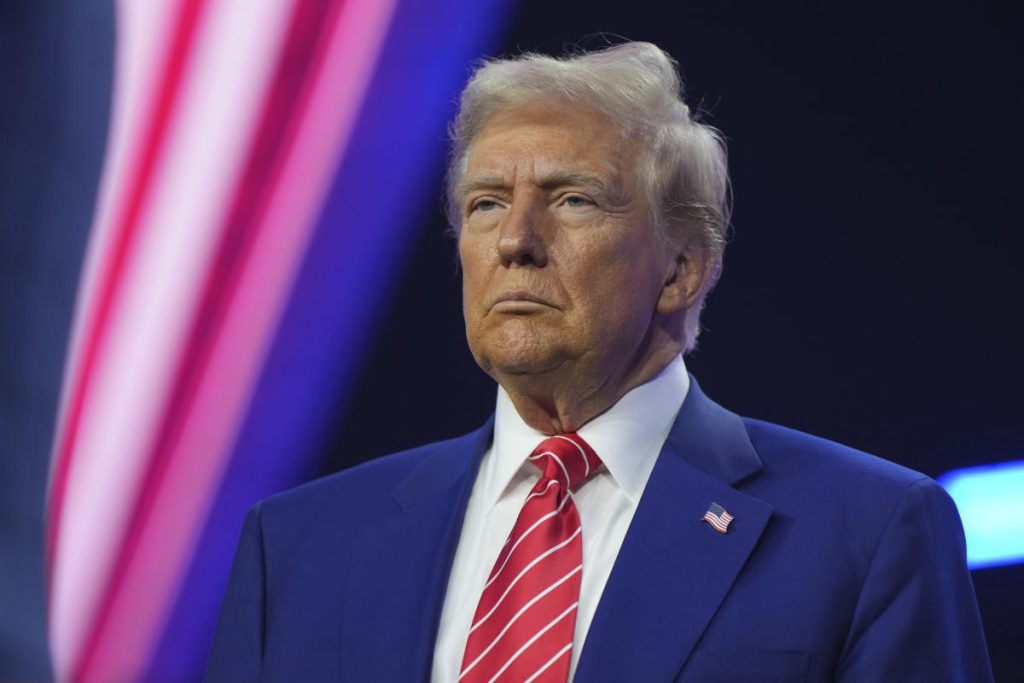This week in Bidenomics: New president, same gloom

“`html
Americans clearly dislike the Joe Biden economy. They’re not feeling a lot better about the soon-to-arrive Donald Trump economy, either.
Consumer Confidence and Economic Outlook
Consumer confidence dropped from November to December by a significant margin. The biggest change was in the economic outlook. The portion of respondents expecting economic conditions to improve dropped from 24.7% to 21.7%. Those expecting conditions to worsen rose from 15.9% to 18.3%. Overall, the expectations index is barely above levels associated with a recession.
The expectations index has been stuck around recessionary levels since 2022, when inflation peaked at a punishing 9%. In November, the economic outlook looked like it might be ready for a breakout when it hit the highest level in 35 months. That survey included responses gathered after Trump won the presidential election. Since many voters picked Trump hoping he’d be better for the economy than Kamala Harris, it made sense that some Americans saw a brighter future once they knew Trump would be the next president.
Except now, they don’t. The economic outlook is back to where it was in July, the month Biden dropped out of the presidential race, to be replaced by Harris. The underlying economy has improved since then. Inflation is lower and the Federal Reserve has started cutting short-term interest rates. Employers have created 600,000 new jobs and the stock market has drifted ever higher. Americans aren’t feeling it.
Republican Optimism and Consumer Concerns
Biden struggled with an economy that was the strongest in the developed world, yet plainly unsatisfactory to his own electorate. The obvious reason was the elevated cost of food, rent, and gasoline. Trump should be poised for a fresh start. Inflation has dropped from 9% to 2.7%, and Trump can convincingly lay the whole problem on Biden. Solid fundamentals should provide Trump with an economic tailwind the moment he takes office on Jan. 20.
One group of voters is clearly more optimistic: Republicans. After Trump won, Republican optimism soared, while Democratic spirits sank. Independents didn’t change their outlook much. Overall, confidence has shown slight improvement, yet the economic outlook has deteriorated.
One thing that seems to be happening is consumers are bracing for price hikes once Trump delivers the tariffs on imports he has been threatening. In its latest survey, a significant portion of respondents said they expect Trump’s trade duties to raise living costs. The expectation of large household purchases becoming more expensive has jumped significantly, the highest level in polling that goes back to 2008.
Tariffs are arcane, and voters are fuzzy about them, in part because Trump claims falsely that foreign firms pay tariffs, when in fact American importers do—and they often pass those higher costs onto consumers. Voters seem to be catching on, however, perhaps because Trump’s 2024 win has turned new tariffs from a hypothetical into a likely reality.
Trump has already said, for instance, that one of his first moves in office will be to impose a new 25% tariff on imports from Canada and Mexico, and a 10% levy on goods from China. That would raise the cost of many everyday items. Media reports are now delving into specific types of goods likely to get more expensive, including food, clothing, shoes, toys, electronics, and industrial machinery. Shoppers, in turn, are preparing.
There could be another factor that undercuts Trump’s standing on the economy: Some Americans think prosperity is disappearing no matter how strong the economic data looks. This includes many non-college grads who can’t find fulfilling careers in a tech-based information economy. That’s a long-term problem bedeviling every advanced nation that isn’t particular to any US president. Trump taps into that frustration better than other politicians, but he can’t get every frustrated worker a good-paying manufacturing job in an economy where manufacturing is just 10% of total output.
Maybe the gloom will lift once Trump takes office. His tariffs could be more bark than bite and have little effect on prices if he ultimately backs down. If food and gasoline prices continue to decline, it might finally break the hex. Maybe Trump will just be a more uplifting national leader than the fumbling Biden. Thing is, Trump will be running more or less the same economy as Biden, even if the branding is different.
“`